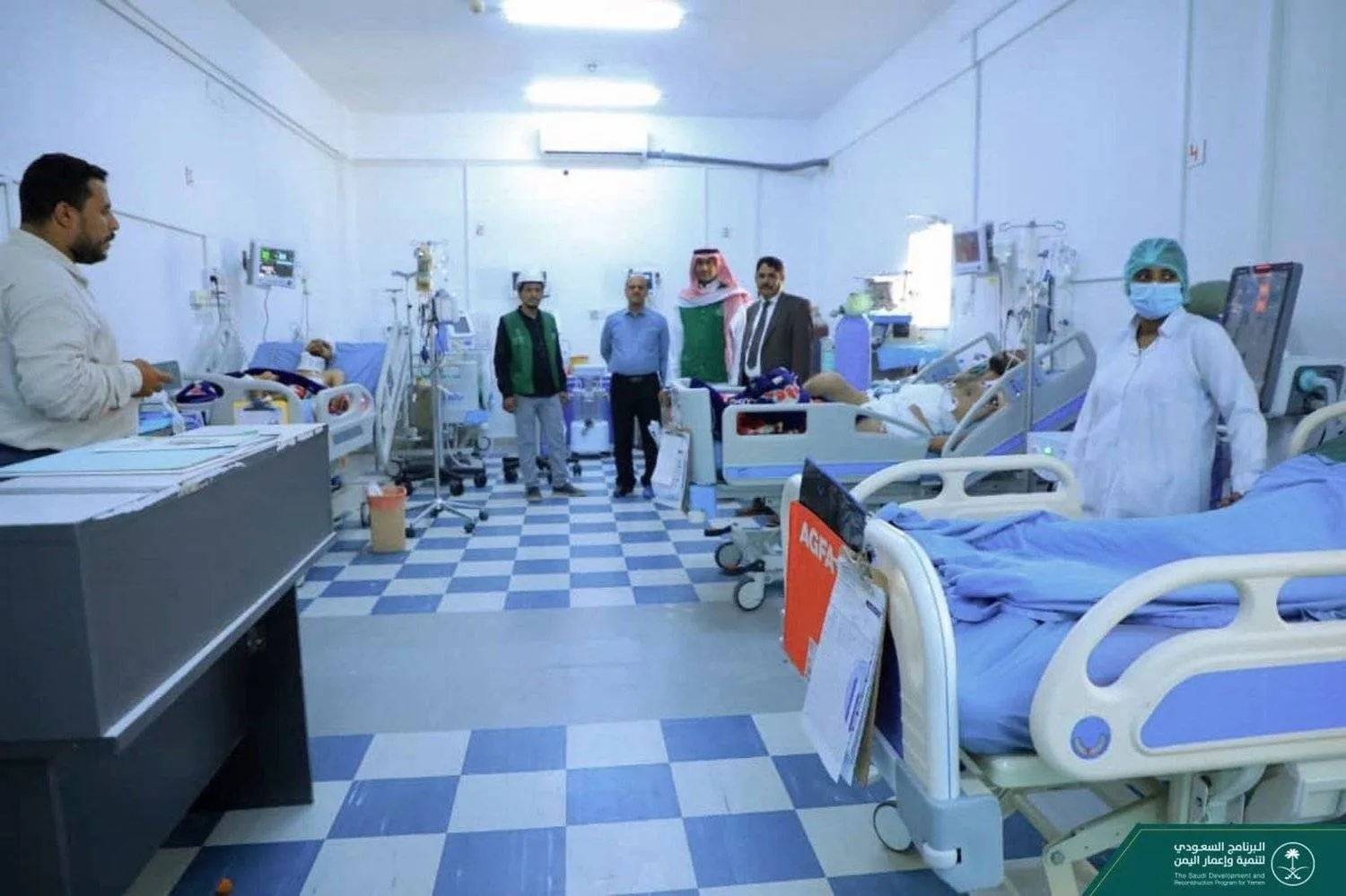Protracted conflict in Yemen has severely undermined healthcare services, with 46% of health facilities currently either partially operational or entirely out of service for various reasons, including fuel shortages.
The conflict has led to a decline or complete cessation of healthcare services, severely hampering people's access to essential medical care.
According to the United Nations Development Program (UNDP), these circumstances underscore the urgent need for alternative power sources to maintain the operation of healthcare facilities and guarantee an uninterrupted provision of healthcare services.
The program explained that it received support from the Kuwait Fund for Arab Economic Development to implement renewable energy projects at al-Jumhori Hospital in Hajjah, 26th September Hospital in Sanaa, al-Shaheed Muhnaf Hospital in Abyan, and al-Waht Hospital in Lahj.
The initiatives are a part of the Renewable Energy Improve Access to Health Services and Livelihood Opportunities (HEAL) Project.
The HEAL Project addresses the lack of access to energy in health facilities and income opportunities for women and youth in Aden, Lahj, Abyan, Sanaa, and Hajjah governorates, reaching over 200,000 individuals.
The project will also promote economic empowerment models for women and youth through solar microgrids.
- Quality initiatives
Solar energy systems ensure the delivery of medical services to patients. The system harnesses electricity from alternative and low-carbon energy sources, enabling the hospital to maintain its services across all departments, especially the laboratory.
Following the implementation of this intervention, workers in the areas witnessed a significant improvement, noting that electricity supply became consistent, and services are now provided without any disruptions caused by power outages.
The project includes the installation of approximately 240 solar panels with a power capacity of 460 watts, along with batteries and other essential components.
Dozens of workers have acquired new skills that qualify them to work in similar jobs, which will become a source of income that helps them cope with their challenging living conditions.
- Ensuring service continuity
To keep hospitals operational within the framework of the renewable energy project, the 26th September Hospital in Sanaa was equipped with a solar energy system to improve the hospital's functional capacity.
Without electricity, patients' health could deteriorate, leading to complications. Therefore, solar energy systems contribute to reducing fuel consumption costs and alleviate patients' suffering.
A stable electricity supply across all hospital departments has significantly improved the overall experience for patients, making it easier for them to receive high-quality care.
According to the UN report, over-reliance on electric generators can significantly threaten patients' lives and negatively impact the quality of healthcare services.
Workers in the beneficiary hospitals say that the power outages endanger patients' lives in intensive care units and operating rooms and put infants in incubators at risk, as they need treatment and temperature regulation.
They asserted that the project ensures a stable electricity supply, enabling them to continue providing children uninterrupted and high-quality healthcare services.









